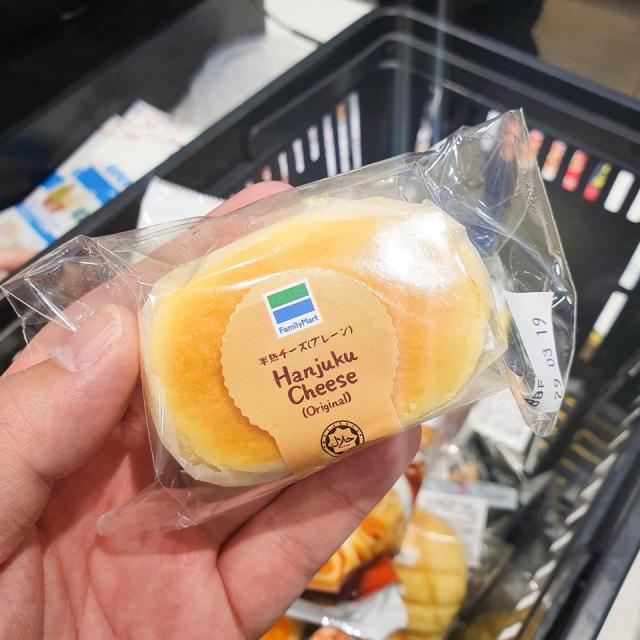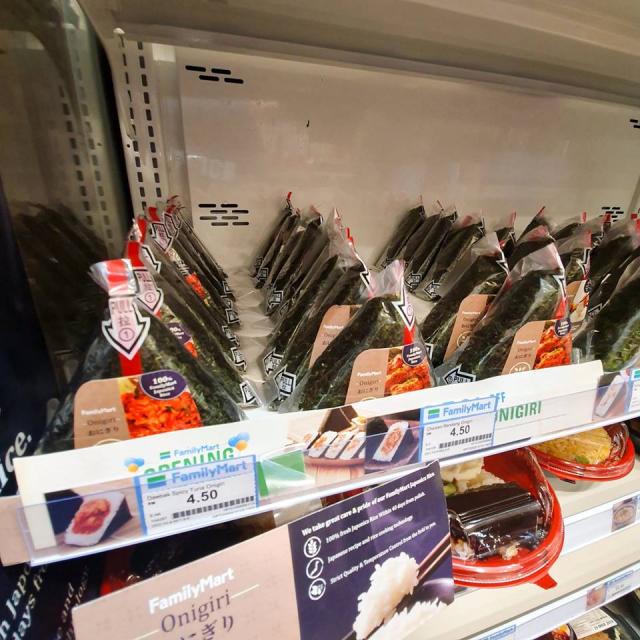Search the Community
Showing results for tags 'japan39s'.
-
Those who always go Japan I'm sure you're a big fan of their convenience stores - FamilyMart, Lawson, 7-Eleven!Another reason to go JB! Onigiri,Omurice,Katsu Curry Rice, Oden, Sandwiches, Japanese cheesecakes etc! Why are they not in Singapore already?
- 8 replies
-
- 6
-

-
- japan
- familymart
-
(and 2 more)
Tagged with:
-
Former president of Japan's Toyota dies at 88 https://www.channelnewsasia.com/news/asiapacific/former-president-of-japan-s-toyota-dies-at-88-9838662 Toyota's former president Tatsuro Toyoda, who helped the Japanese auto giant establish a foothold in North America, has died at the age of 88, the company said Saturday. TOKYO: Toyota's former president Tatsuro Toyoda, who helped the Japanese auto giant establish a foothold in North America, has died at the age of 88, the company said Saturday (Jan 6). Toyoda, an uncle of current Toyota CEO Akio Toyoda, died of pneumonia on December 30, the firm said in a statement. His funeral has already been held and was attended by close relatives, but Toyota said it plans to hold a separate farewell ceremony. Toyoda joined the company - founded by his father Kiichiro Toyoda - in 1953 and in 1984 became the first president of a new firm formed by Toyota and General Motors. The California-based joint venture was part of Toyota's push to expand production and increase its share in the North American market. The plant produced nearly 8 million vehicles until its closure in 2010, according to the company. Toyoda served as Toyota president between 1992 and 1995. RIP
-
http://www.telegraph.co.uk/news/worldnews/asia/japan/11074135/Japans-first-ever-roundabouts-confuse-drivers.html
- 38 replies
-
- japan
- roundabout
-
(and 7 more)
Tagged with:
-
TOKYO—Japan's $1.26 trillion public pension fund will likely announce a boost to stock and foreign-bond investments in early autumn, the head of its investment committee said Tuesday, potentially sending tens of billions of dollars into new markets. A shuffle at the world's largest pension fund would achieve one of Prime Minister Shinzo Abe's objectives and could help invigorate Japan's economy, which is beginning to emerge from a decadeslong era in which investors mostly avoided risk. "I personally think that we need to complete [the new portfolio] in September or October," Yasuhiro Yonezawa, head of the Government Pension Investment Fund's investment committee, said in an interview. "There's no reason to be slow." Mr. Yonezawa outlined a tentative plan for a portfolio shift that would raise the allotments of the fund's assets to go into domestic stocks, foreign bonds and foreign stocks by five percentage points in each category. The aim is twofold: to boost returns to ensure Japanese retirees get the payouts they expect, and to stimulate risk-taking at home by funneling money into growing Japanese businesses. That is in tune with the prime minister's pro-growth "Abenomics" policies. Since taking office in late 2012, Mr. Abe has exhorted the pension fund to rethink its long-standing conservative investment strategy. Currently, domestic stocks and foreign stocks are each targeted to get about 12% of the fund's investment. Under the baseline scenario outlined by Mr. Yonezawa, those figures would rise to 17% each, while the portion allotted to foreign bonds would rise to 16% from 11%. Domestic bonds would fall to 40% from 60%, and the portfolio would likely include a new category for alternative investments in areas such as infrastructure, he said. Mr. Yonezawa said he and two other members of the eight-member investment committee would begin to craft a new portfolio this week. The figures could change based on the group's discussions, he said, adding that the three members would discuss whether to carry out the reshuffle before or after the announcement set for this autumn. The changes could raise uncertainty for tens of millions of Japanese who count on steady pension payouts in retirement. With its traditional focus on Japanese sovereign debt, the fund has performed relatively well in recent years despite extremely low debt yields, in part because the country's deflationary environment was good for bonds. "The [Government Pension Investment Fund] shouldn't be used as a tool for short-term-oriented intervention in asset markets. It's not a piggy bank for short-term policy purposes. Each penny of the GPIF is pension money," said Nobusuke Tamaki, a former fund official who now teaches at Otsuma Women's University. The new focus is essentially a bet on inflation, which Mr. Abe and Japan's central bank have pledged to create. "Until now, it wasn't too good to invest in Japanese stocks, when there wasn't Abenomics," Mr. Yonezawa said. "But recently, Japanese companies are changing, and I think things are getting better." He said Japanese firms were getting a higher return on equity and shifting toward stronger corporate governance. The Japanese pension fund is like Social Security in the U.S. in that it collects money from payroll taxes and uses the cash for payments to retirees. But, unlike Social Security, which puts its funds in nontradable Treasury securities, the Japanese fund can invest in a range of assets, including stocks and bonds from both Japanese and foreign issuers. The fund has invested conservatively, giving a 60% weighting to domestic bonds. It has operated on a shoestring budget out of a single office in Tokyo with fewer than 80 employees. By comparison, the second-largest pension fund in the world—Norway's $770 billion Government Pension Fund Global—is run by an organization with about 370 employees. Reports of changes to the Japanese fund lifted the Tokyo stock market last week, with investors aware that even a shift of a percentage point could send $10 billion flowing in a new direction. But the Nikkei Stock Average remains down for the year as foreign investors question whether Mr. Abe's program will be enough to jolt Japan's economy out of its doldrums. While the Japanese pension fund's changing priorities could push up the value of some foreign assets, the money would likely be so diversified that its impact would be diluted. Even before the new portfolio is completed, the fund has made significant changes in recent months. In February, it said it would start its first joint infrastructure-investment program, through which it would work with other investors to fund projects such as power plants, gas pipelines and railways in developed countries. The fund has started a new four-person division dedicated to nonlisted assets such as infrastructure, private equity and real estate, people with knowledge of the organization say. The fund has traditionally hired large asset managers such as BlackRock Inc., but in April it unveiled a new roster of managers for its portfolio of Japanese stocks and brought on some little-known names. One of the new managers, Seattle-based Taiyo Pacific Partners, has sponsored annual retreats for 25 to 35 Japanese chief executives for the past five years with the hope that improving management will translate into better shareholder returns. In one group activity at the retreat, Japanese managers work together under hot conditions to pound unfinished metal into samurai swords. Fund managers are interested in seeing whether the pension fund will continue to diversify its roster of asset managers, although some say the fund's paltry management fees don't make the business worthwhile. The pension paid a little more than $200 million, or about 0.02% of its portfolio, for outside managers in the fiscal year that ended in March 2013.











